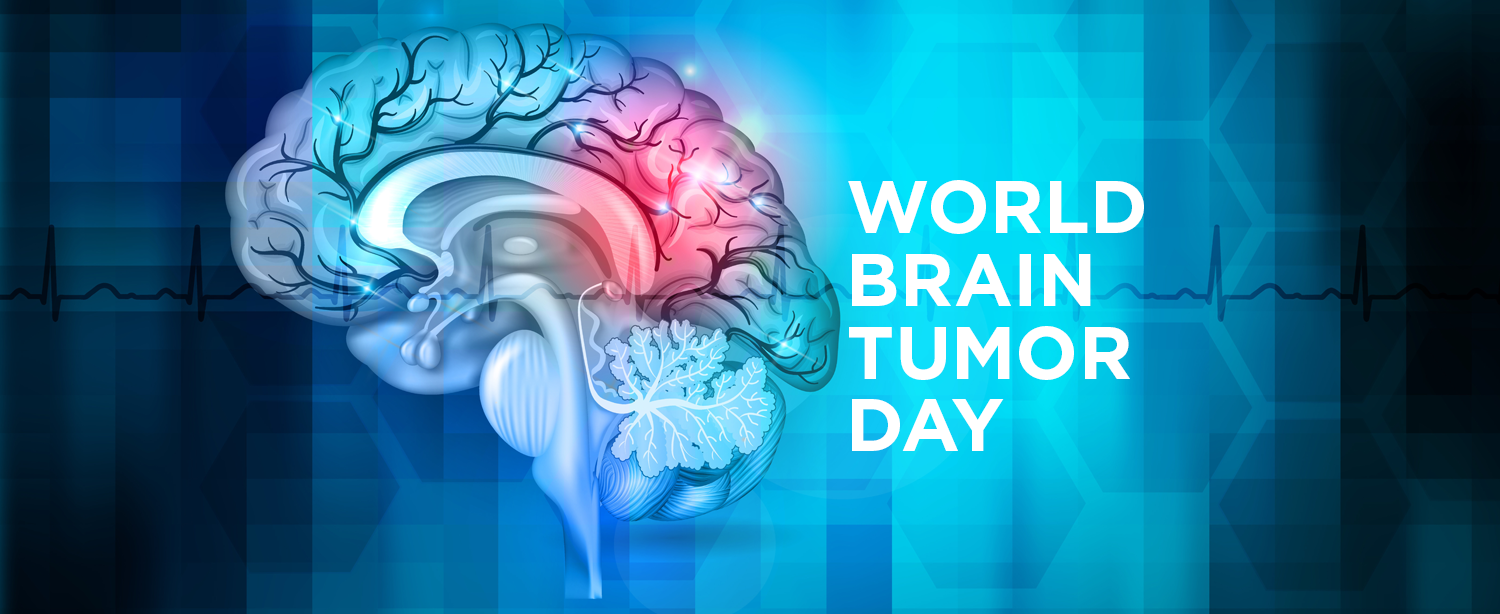What is Brain Tumour?
A brain tumour is a mass, or lump in the brain which is caused when brain cells divide and grow in an uncontrolled way. These brain cells grow and divide differently from healthy cells, forming a high grade (cancerous) or a low grade (benign) tumour. There are over 130 different primary brain and spinal tumours which are grouped and named according to the type of cell they grow from, their location in the brain and how quickly they are likely to grow and spread.
Type of Brain Tumour
What is the difference between a primary brain tumour and a metastatic (secondary) brain tumour?
Primary brain tumours originate in the brain itself. Primary brain tumours do not spread from the brain to other parts of the body except in rare cases. Pathologists classify primary brain tumours into two groups:
- Glial tumours (gliomas)
- Nonglial tumours
Gliomas are composed of glial cells, which include astrocytes, oligodendrocytes, ependymal cells, Schwann cells, microglia and satellite cells. Nonglial tumours develop on or in structures within the brain, such as nerves, blood vessels and glands.
Metastatic or secondary brain tumours begin as cancer in another part of the body. Some of the cancer cells may be carried to the brain by the blood or may spread from adjacent tissue. The site where the cancerous cells originated is referred to as the primary cancer. Metastatic brain tumours are often referred to as brain metastases or lesions. Metastatic brain tumours are the most common brain tumours.
Some Brain tumour facts:
- The brain is the body organ composed of nerve cells and supportive tissues like glial cells and meninges – there are three major parts – they control your activity like breathing (brain stem), activity like moving muscles to walk (cerebellum) and your senses like sight and our memory, emotions, thinking and personality (cerebrum).
- Brain tumours can occur at any age.
- Doctors group brain tumours are classified by grade (grade I, grade II, grade III, or grade IV -the most severe). The higher the grade number, the more abnormal the cells appear, and the more aggressively the tumour usually behaves.
- The most common types of primary brain tumours among adults are astrocytoma, meningiom, and oligodendroglioma.
- The most common type of primary brain tumours in children are medulloblastoma, grade I or II astrocytoma, (or glioma) ependymoma, and brain stem glioma.
Brain tumour Symptoms
Symptoms of brain tumours vary according to the type of tumour and the location. Because different areas of the brain control different functions of the body, where the tumour lies affects the way symptoms are manifested. Some tumours have no symptoms until they are quite large and then cause a serious, rapid decline in health. Other tumours may have symptoms that develop slowly.
Headaches is a common symptom, other symptoms include:
- Seizures.
- Changes in speech or hearing.
- Changes in vision.
- Balance problems.
- Problems with walking.
- Numbness or tingling in the arms or legs.
- Problems with memory.
- Weakness in one part of the body.
How are Brain Tumours diagnosed?
To diagnose a brain tumour consult a neurologist. He may suggest a few tests like CT scan or MRI for further diagnosis.
How are Brain Tumours treated?
Surgery to remove the tumour is typically the first option once a brain tumour has been diagnosed. However, some tumours can’t be surgically removed because of their location in the brain. In those cases, chemotherapy and radiation therapy may be options for killing and shrinking the tumour.
Treatment also includes rehabilitation following treatment. Rehabilitation could involve working with several different therapists, such as:
- Physical therapist to regain strength and balance.
- Speech therapist to address problems with speaking, expressing thoughts, or swallowing.
- Occupational therapist to help manage daily activities such as using the bathroom, bathing, and dressing.
Risk factors
We don’t know exactly what causes brain tumours, but some of the risk factors that have been identified include:
Age
Brain tumours occur most commonly in children and older adults, though they can occur at any age.
Sex
In general, brain tumours are more common in men than in women (around 70 percent more common).
Radiation Exposure
Exposure to radiation. either diagnostic (such as a CT scan or x-ray of the head), therapeutic (such as with radiation therapy to the head to treat leukaemia, or when radiation was used to treat scalp psoriasis), as well as radiation related to atomic bomb blasts are associated with a higher risk of developing a brain tumour.
A personal history of cancer
Both childhood cancers, and cancers such as non-Hodgkin’s lymphoma, leukaemia, and glioma in adults, are associated with an increased risk of developing brain tumours. It’s not known if this is related to the cancer itself or treatments for the cancer.
HIV/AIDS
People who have HIV/AIDS have roughly double the risk of developing a brain tumour.
Seizures
Having a seizure disorder has been associated with the development of brain tumours. The medications used to treat seizures that may raise the risk.
Prenatal Factors
Prenatal birth weight, specifically a high foetal growth rate has been associated with a significantly increased risk of brain tumour. Even children who are born large for gestational age or small for gestational age are at more risk of having a brain tumour.
Medications
The use of certain anti-inflammatory medications has been associated with a reduced risk of brain tumours.
Pesticide Exposure
There is some evidence that exposure to insecticides used in the home increase the risk of brain tumours in children and young adults.
Occupational exposures
Many people are exposed to carcinogens (cancer-causing substances) at the workplace. Some occupations that have been linked with an elevated risk of brain tumours include fire fighters, farmers, chemists, and those who work with petrochemicals, power generators, synthetic rubber manufacturing, or agricultural chemical manufacturing.
Consult our Centre for Neurosciences for further assistance for brain tumour. Please find below link for further details:


